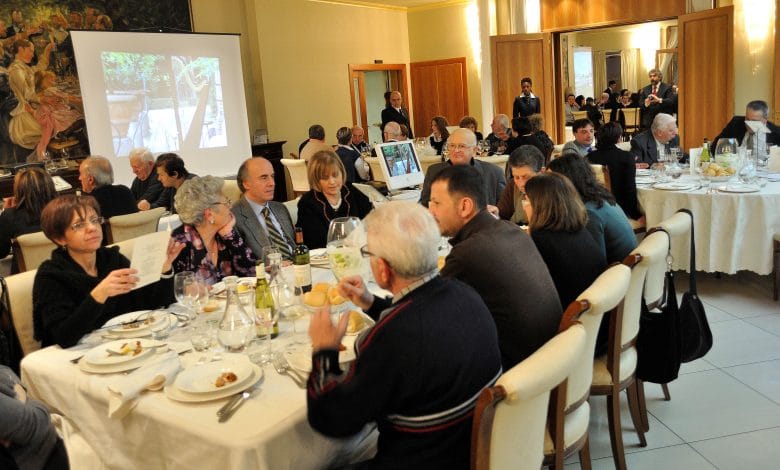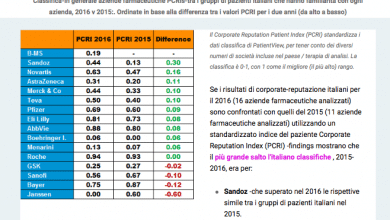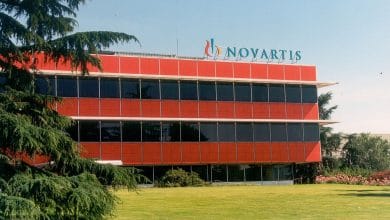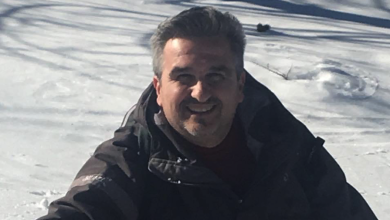
An American research confirms an old suspicion: doctors prescribe to their patients drugs produced by companies that offer them meals, parties, small gifts. And the generic ones remain unsold.
From the Express dated 06 July 2016 by PAOLA EMILIA CCERONE
Ed.: We report some excerpts from the Espresso article and we postpone the complete reading to the link indicated above
( … omitted …)
 In Italy, it is above all the doctors who bring the voice of pharmaceutical companies to doctors health informants: "And they are a constant presence in the studios: on the other hand they are prepared to become friends with doctors, to create a personal relationship", explains the pediatrician SelfGiorgio Conti Nibali
In Italy, it is above all the doctors who bring the voice of pharmaceutical companies to doctors health informants: "And they are a constant presence in the studios: on the other hand they are prepared to become friends with doctors, to create a personal relationship", explains the pediatrician SelfGiorgio Conti Nibali
( … omitted …)
Talking about corruption would perhaps be excessive, "but shall we try to imagine how things would go if AIFA and the ministry were present in doctors' surgeries like companies are?" suggests Conti Nibali. "The problem is that certain practices are customary, it's hard to think that it's not appropriate to accept a coffee or a small gift".
( … omitted …)
"Perhaps, less impressive data would emerge from a similar study done in Italy," defuses Cosimo Nume, communications manager of Fnomceo, the federation of medical orders. «Here we resort more often to first choice drugs, less expensive than those examined by American researchers, and there are rules on generic drugs, which the citizen can ask the pharmacist directly, even if the doctor has prescribed a specialty of brand".
( … omitted …)
 In short, at our house, lunches seem to be the least of the problems, or almost so. "American whistleblowers are less present in doctors' surgeries, precisely because they use convivial meetings: perhaps our practice is more transparent," observes Nume. Even if the effects of the meetings in the studio are difficult to evaluate: "A survey carried out in 2016 by the Fimg study center shows that a general practitioner sees five informants every week, which rises to nine in the southern regions", he observes Bobbio. "We receive the informant out of habit, out of courtesy, to receive useful information: but we cannot know what happens during these meetings".
In short, at our house, lunches seem to be the least of the problems, or almost so. "American whistleblowers are less present in doctors' surgeries, precisely because they use convivial meetings: perhaps our practice is more transparent," observes Nume. Even if the effects of the meetings in the studio are difficult to evaluate: "A survey carried out in 2016 by the Fimg study center shows that a general practitioner sees five informants every week, which rises to nine in the southern regions", he observes Bobbio. "We receive the informant out of habit, out of courtesy, to receive useful information: but we cannot know what happens during these meetings".
In recent years, however, malpractice seems to be decreasing. Thanks also to rules and codes of ethics that prohibit the most scandalous collusions, such as medical congresses organized in tourist resorts and in the high season, with free days and the possibility of bringing a companion. While invitations to congresses, as an audience but also as speakers, or participation in training courses are legitimate, «which companies offer with what is defined as an “unconditional contribution”», recalls Nume.
( … omitted …)
Farmindustria has adhered to the European Disclosure Code which requires "money transfers" between doctors and companies to be put online. For now, it will be necessary to look for them on the websites of the individual companies: "But a patient who is dissatisfied with a prescription will be able to verify whether the doctor has economic interests linked to that drug" , recalls Nume, anticipating that he is thinking about how to simplify access to the data.
( … omitted …)
Ed: We believe that it is not possible to compare the American data to the Italian reality. As is well known, the American Health Service does not exist, there is, after the Obama reform, a onerous system for citizens of private health insurance. In Italy, on the other hand, there is a National Health Service financed mostly by general taxation.
American Scientific Infornatori are actually "Pharmaceutical Sales Representatives", i.e. sales representatives who have very different working methods from the Italian ones. In Italy there are Pharmaceutical Representatives (ISF) as defined by Legislative Decree 219/06 which regulates their activity and prohibits their sale.
The pediatrician interviewed in the Espresso article, Dr. Sergio Conti Nibali, speaks of unspecified "health informants". Probably, given that he is a pediatrician, we assume that he confuses the sales representatives who sell baby milk and the Scientific Representatives of the drug. As you can guess, infant formula is not a drug, the Ministry of Health classifies it among the "food products intended for a particular diet" and obviously the milk vendors do not follow the provisions of Legislative Decree 219/06 which regulates the activity of the ISFs. We inform him that the ISF do not follow any course to become friends of the doctors. We think that before speaking to an ISF newspaper we should know who the ISF are, what they do, what they can do and what they cannot do.
Prof. Bobbio then hypothesizes who knows what mysterious practices in the meetings between the ISF and the doctor, suggesting who knows what trade. If Prof. Bobbio is aware of any unlawful behavior, report it to the judiciary. He should realize that such allegations are defamatory of an entire class of professionals. But is it ever possible that in these articles we always talk about ISF as great corruptors without knowing anything about ISF. And the doctors who are treated, whatever happens, as ignorant imbeciles or worse as corrupt never have anything to say?
And these irreproachable censors have nothing to say about how the ASL rewards with money those doctors who prescribe those drugs indicated by the ASL themselves? And aren't they scandalized at how the medical act becomes increasingly subordinated to the economic pressures of the various ASLs? And where does the centrality of the patient end?
And finally, dear journalists, when you talk about ISF, interview at least one ISF who says what the "true" reality is and not the imagined one!
Related news: Farmindustria, on transparency code for doctors' accessions up to 90%
National Association of Pharmaceutical Sales Representatives
Whistleblowers influence the prescription. As? With sticky notes and pens
USA. Prescriptions: when the doctor is conditioned. Ed
“Even a tiramisu is corruption”. Fabio De Luigi plays an ISF
Powdered milk for babies: what the law says
Now There's Proof: Docs Who Get Company Cash Tend to Prescribe More Brand-Name Meds
Dollars for Docs 684,915 doctors, $3.49 Billion in disclosed payments, 1,135 teaching hospitals, 1,565 companies
Overprescription, communication to doctors does not work in the US





